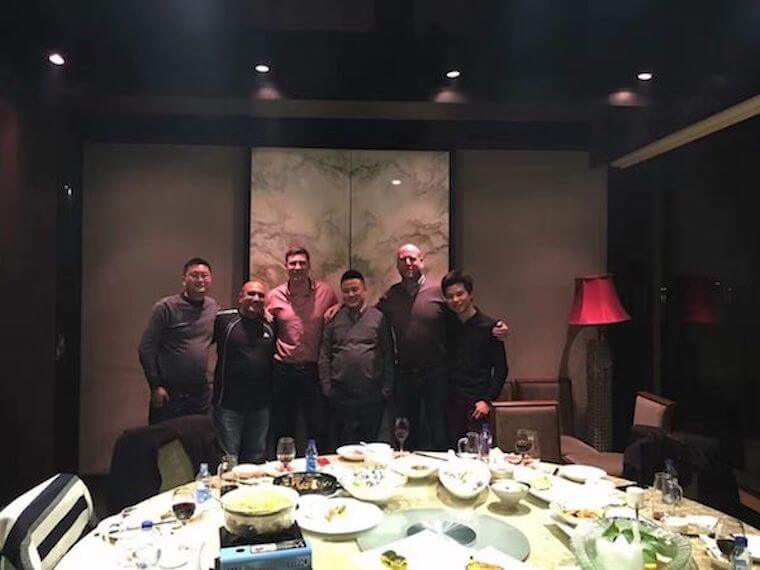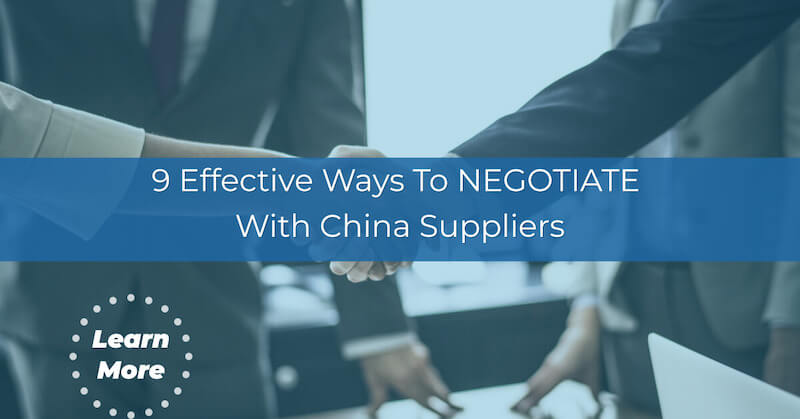Quality and innovatively designed private label products have a habit of doing excellently in the e-commerce circles.
Such products are only born of fruitful negotiations between the e-commerce store owner and their Chinese supplier as well as constant engagements throughout the production stages.
Given the increased popularity of product shipping from China, I have had most prospective store owners, as well as established ones, come to me for advice on how to negotiate productively with a Chinese supplier.
To effectively address this subject, I came up with this nine-point guide on how to navigate through the language, cultural and economic perception barriers that might stand in the way of a fruitful negotiation with your product supplier
Engage a neutral translator

The first thing that comes to an innovators mind they think of having their products manufactured in China is how to break the language barrier. In such a case, you need a translator or sourcing agent.
However, you don’t start looking for a translator after identifying a potential supplier or after arranging a sit-down. Understand that not all quality product manufacturers have an English website.
In such a case, I advise that you engage the translator early on in identifying possible reputable and high-quality manufacturers that might not have a well-translated website.
Additionally, vet the translator for neutrality to ensure that they don’t direct you to their favorite but not so quality suppliers.
Don’t rush the negotiations

Most private label product innovators agree on one thing when it comes to dealing with Chinese suppliers, they are never in a rush.
You can, therefore, expect lengthy and time-consuming negotiations about the product quality, the production process, and the compensation.
Unlike in the USA where you can pick up a phone and have even the most sensitive business discussions with a business partner, Chinese suppliers prefer face to face negotiations.
Therefore, after identifying a potential supplier, start making arrangements on how to visit their plant.
During the sit-down, expect to go over what you may consider trivial matters in details as well as a repeat others you might have already agreed on via email or phone conversations.
Be patient in such cases and desist from showing any signs of anger or frustration as your new partners take note of both your words but your expressions.
Sometimes, new small business owners are not able to visit factories, before import online from China, you must also be patient.
Remain objective and respectful

Chinese entrepreneurs can be quite hospitable to people they like, or in this case, are wooing into a partnership.
If the manufacturing company considers you a catch, they will treat you to lunch or dinner and even invite you to Baijiu drinking sessions with the top management.
However, remain objective and don’t be tempted to okay terms of engagement that you had previously said you would give an extra thought at the height of this excitement and hospitality.
Whether you are looking for a price reduction or compromise in the products raw materials, don’t let your eyes off the price.
Avoid engaging in business banter during such outings and instead take time to learn their personalities. If you must talk business, educate them about your business model while driving their empathy towards its current standing.
Provide as much info about the intended product as possible

If you come to an agreement, don’t just take your supplier’s word for it, put it down in writing. I advise that you engage a Chinese lawyer as he has a better grasp of the country’s business laws.
The contract should include all your deliberations about the product, the production process as well as the quality of the expected output.
This holds them accountable and deters them from deviating from a part of the production process by using shortcuts like the use of inferior raw materials.
Be clear on who has the final word on product decisions

Who has the final word with regards to any changes on the product? I advise that you include a clause in the contract stating that you have the last word on the product design and any changes to its production process.
After all, you have a better understanding of your market. Make it clear to the product supplier that they can’t make changes to your design and product description or your agreed production process without running such alterations by you for approval.
Make them recap your agreements
Nods aren’t acceptable in business negotiations with a Chinese supplier. Instead of just accepting their nod as an understanding of your proposed product specifications, ask the supplier, politely, recap your proposal.
This ensures that you understand each other’s position and that everyone walks from the table fully aware of what is expected of them. However, maintain utmost respect while addressing the suppliers and patience if they don’t understand English.
Go through the production process with the supplier

Don’t leave the company without looking at a simulation of your private label product’s development process.
Familiarize yourself with the manufacturer’s proposed process and how it impacts the quality of your product.
What are your long-term goals and to what heights would you like to propel the business in the foreseeable future? Do you see yourself ordering more of the same product?
Check the manufacturer’s ability to produce in bulk while maintaining product integrity.
Don’t over-bargain with the supplier

What you pay, is what you get. The theory holds true for every Chinese manufacturer. Every dollar you shed off the supplier’s proposed price translates to an equal compromise in product quality.
I would, therefore, advise that you don’t push your supplier towards the edge. Most importantly, be wary when he doesn’t say no to your low offer.
Most manufacturers will never say ‘I can’t.’ Rather, they will just feed you a product that’s proportional to your bargained cost.
Only deal with the chief decision maker
You will rarely find a single negotiator in a client-supplier meet up. Most Chinese companies provide you with a team of negotiators.
Nevertheless, there is only one in the group charged with the role of influencing decisions and rubber stamping agreements.
Identify the leader and engage them directly instead of addressing the whole team while taking their opinions and suggestions with the weight they deserve.
Bottom line
The need to break the language, cultural and market perception barriers will take you to your Chinese supplier to iron out your differences in a series of business negotiations.
However, creating a bridge to these problems doesn’t necessarily mean a successful business discussion. Learn your supplier’s negotiation strategy and use it to your advantage.
For instance, use their small talk to draw their empathy towards your business. And when you sit down for the actual negotiations, identify the opinion leader and address them directly.
Most importantly don’t forget to sum up all the necessary negotiation agreements in an enforceable contract.
Import from China actually is not a simple task. If you are working with a sourcing agent like me, then you’re already way ahead of the game. But what if you’re one of the 99% of small business owners or Amazon sellers who are not familiar with importing from China. I want to share my sourcing expertise with you to help you grow business.


Hi Keen,
Your write-up was very insightful on how to negotiate with china suppliers.
I am interested in starting imports of products from china. I think you would readily come handy in the area of sourcing , pricing, quality etc.
I will contact you soon .
Thanks, I will write more articles, hope can help you more!